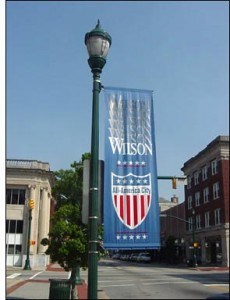After skeptical reviews from the media (and online groups like ours) about Time Warner’s original proposal to create broadband tiers that ended up not saving any customer a penny, the company quickly announced a 1GB slower tier for the light user. San Antonio learned about the plan in a brief report, but no details about the fact that exceeding that 1GB tier would cost your 200 pretty pennies for each gigabyte that followed.
- Home
- Issues
- Multimedia
- Providers
- 3 Rivers Communications
- AAPT (Australia)
- Alaska Communications
- Altice USA
- América Móvil
- Antietam Broadband
- Armstrong Cable
- Astound
- AT&T
- Atlantic Broadband
- BCI Broadband
- Bell (Canada)
- Bell Aliant
- BendBroadband
- Blue Ridge Communications
- Boost Mobile
- Bresnan
- British Telecom
- Buckeye
- Burlington Telecom
- C Spire
- Cable One
- Cablevision (see Altice USA)
- CenturyLink
- Charter Spectrum
- Chickamauga Telephone
- Cincinnati Bell
- Cinergy MetroNet
- Claro Puerto Rico
- Click! Network
- CMA Communications
- Cogeco
- Comcast/Xfinity
- CommSpeed
- Conexon
- Consolidated Communications
- Cox
- Cricket
- DigitalBridge
- DirecTV
- Dish Network
- DSL Extreme/trueSTREAM
- Earthlink
- EastLink
- Empire Access
- EPB Fiber
- EVDO Depot USA
- Exetel (Australia)
- FairlawnGig
- FairPoint
- Fibrant
- Fidelity Communications
- Fido
- Fido Cable
- Firefly Fiber
- Free Mobile/Iliad (France)
- FreedomPop
- Frontier
- GCI (Alaska)
- GoNetspeed
- Google Fiber & Wireless
- Grande
- Greenlight (NC)
- Greenlight Networks (NY)
- GVTC Communications
- Haefele TV
- Hargray
- Hawaiian Telcom
- HKBN (City Telecom)
- HKT (Hong Kong)
- Hotwire
- HughesNet
- Internode (Australia)
- Jio (India)
- Kit Carson Telecom
- Koodo
- Liberty Cablevision (Puerto Rico)
- Liberty-Bell Telecom
- Liberty/UPC
- LightSquared
- Long Lines
- LUS Fiber
- MCG
- MCTV
- Mediacom
- Metrocast
- Metronet
- MetroPCS
- MI-Connection
- Microsoft
- Mid-Rivers Communications
- Midco
- Middleburgh Tel (NY)
- Millenicom
- Mobilicity
- MTS (Manitoba)
- MWEB (South Africa)
- netBlazr
- NetZero
- NewWave Communications
- NextLight
- NorthwesTel
- Novus
- O2 (UK)
- Oceanic Cable
- OMGFAST
- Optus (Australia)
- Orange
- PCL Cable
- Public Mobile
- RCN
- Ringgold Telephone
- Rogers
- SaskTel
- Service Electric
- Shaw
- Sky (UK)
- Sonic.net
- Sony
- Sprint
- Starlink (SpaceX)
- Starry Internet
- Suddenlink (see Altice USA)
- SureWest
- Syringa Wireless
- T-Mobile
- TalkTalk (UK)
- TDS Telecom
- TekSavvy
- Telecom New Zealand
- Telekom Deutschland
- Telekom Malaysia
- Telkom (South Africa)
- Telstra
- TelstraClear (New Zealand)
- Telus
- Tesco (UK)
- Ting
- TracFone
- US Cable
- US Cellular
- USI Wireless
- Utopia (Utah)
- Verizon
- ViaSat Exede
- Vidéotron
- Virgin Media (UK)
- Virgin Mobile
- Virgin Mobile (Canada)
- Vodafone (New Zealand)
- Vodafone (UK)
- Wave Broadband
- Webpass
- WildBlue/Exede
- Wind Mobile (Canada)
- Windjammer
- Windstream
- WiredWest
- Wireless 'n Wifi
- WOW!
- Ziply Fiber
- Streaming Services
 Subscribe
Subscribe- About Us
- Alternatives!
- Contact Us
- Take Action!





